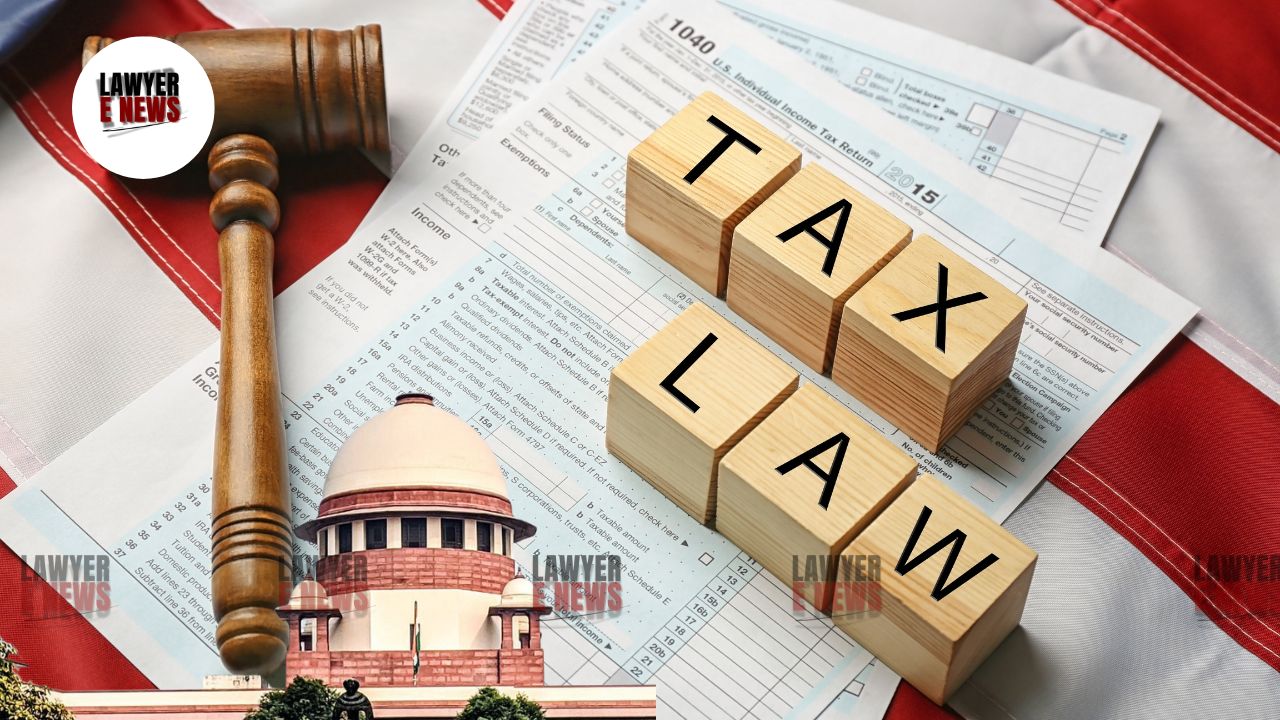-
by Admin
16 February 2026 4:21 AM



"Once an Offence is Committed Before a Show Cause Notice, It Remains a 'First Offence'": Supreme Court Allows Compounding of Income Tax Offence. In a landmark ruling Supreme Court of India held that an offence under Section 276CC of the Income Tax Act, 1961—which penalizes failure to file income tax returns on time—is committed on the day immediately following the due date prescribed under Section 139(1) of the Act. The Court further ruled that once an offence is committed before a show cause notice for prosecution is issued, it remains a "first offence" under the 2014 Guidelines for Compounding of Offences under Direct Tax Laws, making it eligible for compounding.
A bench of Justice J.B. Pardiwala delivered the verdict in Vinubhai Mohanlal Dobaria v. Chief Commissioner of Income Tax & Anr., overturning the Gujarat High Court’s rejection of a compounding plea. The appellant had been prosecuted under Section 276CC for belated filing of income tax returns for AY 2011-12 and AY 2013-14. While the compounding application for AY 2011-12 was allowed, the application for AY 2013-14 was rejected on the ground that it was a "second offence."
The Supreme Court, however, found this interpretation legally flawed, ruling that: "The offence for AY 2013-14 was committed on 01.11.2013, the day after the due date of filing, which was before the show cause notice for AY 2011-12 was issued on 27.10.2014. Since both offences occurred before any prosecution notice, the AY 2013-14 offence remains a 'first offence' under the 2014 Guidelines, making it eligible for compounding."
"High Court Ignored Fundamental Principles of Tax Prosecution—Compounding Rejection Was Erroneous"
The Supreme Court disapproved of the Gujarat High Court's ruling, which wrongly considered the actual date of belated return filing (29.11.2014) as the date of the offence for AY 2013-14, instead of recognizing that the offence was committed immediately after the due date (01.11.2013).
"The date of belated return filing has no relevance in determining the date of offence under Section 276CC. An assessee cannot escape liability merely by never filing a return. The offence occurs the day after the due date, and any later filing does not erase the violation."
The Court relied on Prakash Nath Khanna v. CIT (2004) 9 SCC 686, which had earlier settled that failure to file returns by the due date itself constitutes an offence, regardless of whether the return is filed belatedly or not.
"2014 Compounding Guidelines Misapplied—Offence Should Be Compounded"
The Supreme Court found fault with the Income Tax Department’s reliance on an overly rigid reading of the 2014 Compounding Guidelines, which define a "first offence" as one committed before a show cause notice is issued.
The Department argued that the appellant had already committed an offence by filing a late return for AY 2011-12 before filing the late return for AY 2013-14, making it a repeat offence. However, the Supreme Court dismissed this argument, ruling: "A first offence under the 2014 Guidelines is determined based on when the offence was committed, not when it was detected. Since both offences (AY 2011-12 and AY 2013-14) occurred before any show cause notice was issued, they both qualify as first offences under the Guidelines."
The Court criticized the Department’s approach, noting that compounding is meant to encourage voluntary compliance, not penalize taxpayers with an arbitrary interpretation of rules.
"Compounding guidelines exist to encourage compliance, not to create technical barriers that undermine their purpose. A rigid reading defeats the intent of the Income Tax Act."
"Compounding Is Not a Right, But It Must Be Considered Fairly"
The Supreme Court reiterated that compounding is not a matter of right, but tax authorities must exercise discretion reasonably by considering the facts, circumstances, and conduct of the assessee.
The Court cited Sports Infratech P. Ltd. v. DCIT (2017 SCC OnLine Del 6543), in which the Delhi High Court held that: "While guidelines are binding, they cannot blind the authorities from considering the specific facts of a case. Rejections should not be mechanical."
It also noted that subsequent guidelines in 2019 and 2022 have made Section 276CC offences compoundable up to three times, reflecting a policy shift toward a more lenient and flexible compounding regime.
"A Win for Fair Tax Administration—Supreme Court Directs Fresh Compounding Application"
The Supreme Court set aside the Gujarat High Court’s judgment and quashed the Chief Commissioner of Income Tax’s rejection of the compounding application for AY 2013-14. It issued the following directions:
The appellant shall file a fresh compounding application within two weeks.
The tax authorities shall decide on the application within four weeks, considering all relevant factors.
Trial court proceedings shall remain stayed until the compounding decision is made.
If the compounding application is accepted, the trial shall abate. If rejected, the trial will proceed.
"Tax authorities must apply compounding rules fairly and in the spirit of voluntary compliance. Arbitrary rejections only erode confidence in the system."
A Precedent for Rational Interpretation of Compounding Guidelines
This ruling establishes a crucial precedent on how tax offences and compounding guidelines should be interpreted. It clarifies that:
The date of offence under Section 276CC is the day immediately after the due date—not the date of belated filing.
If an offence is committed before a show cause notice, it remains a "first offence" under the 2014 Guidelines, making it compoundable.
Compounding guidelines must be applied fairly, considering the facts of each case, rather than mechanically rejecting applications.
By striking down the Income Tax Department’s rigid interpretation, the Supreme Court has strengthened the principles of fairness, certainty, and reasonableness in tax administration.
Date of Decision: 07/02/2025
